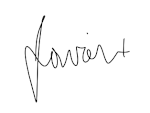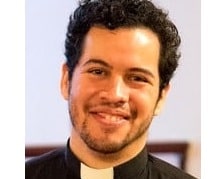When I was young, I had a hard time sitting still at the dinner table. It drove my siblings crazy, the room reverberating to whatever beat my foot happened to be keeping.
As I’ve gotten older, my restlessness hasn’t necessarily abated—it’s simply become more subtle. Even in would-be restful moments, I find myself seeking distraction: exchanging rest for busyness, silence for noise, despite my own best intentions.
This last Fall, we had a couple of therapists join us for a Sunday forum on dealing with stress in the middle of the pandemic. (You can find a recording of that session here.) Toward the end of our time together, I asked a question about yet another way that I found myself restless: I had been staying up later and later each night, catching up on a show or watching a movie, when I knew I’d be better served by getting some sleep.
I felt a little ashamed of my lack of self-discipline, to tell you the truth—and I wanted someone to tell me how to break the habit. Instead, one of the therapists reframed my question: is your body trying to tell you something here? Is your body finding a way for downtime, when you won’t give it what it needs throughout the day?
I found it liberating to have someone reflect that back to me, helping me see how this particular habit wasn’t a moral shortcoming, per se, but a simple warning light on my dashboard. Working from home had blurred my usual boundaries, and my body wanted a bit of a mindless break! Our habits—even ones we would rather do without—can guide us deeper into what we really need. They can help us find what we are truly seeking, if we would stop for a moment and pay attention.
These days, I’m trying to make room for something other than shame and unreflective distraction. I want to create space for a more mindful apprehension of what I really need. Prayer can be one such opportunity.
In Faisal Mohyuddin’s poetic description, the habit of prayer can help “unfasten your cluttered mind from the tangible hold of secular trances.” It can feel like a daunting task for the uninitiated—a test of one’s religious aptitude rather than a respite from the day’s troubles. And yet prayer is supposed to be an avenue for true freedom, not a chore to check off the to-do list: what might it look like to “unfasten your cluttered mind”? What might God have to offer you there, beyond shame and distraction?
— Fr. Javier

Additional Resources:
Poetry Unbound, a podcast with the poet and theologian Pádraig Ó Tuama. It is where I first encountered Faisal Mohyuddin’s poem cited above.

